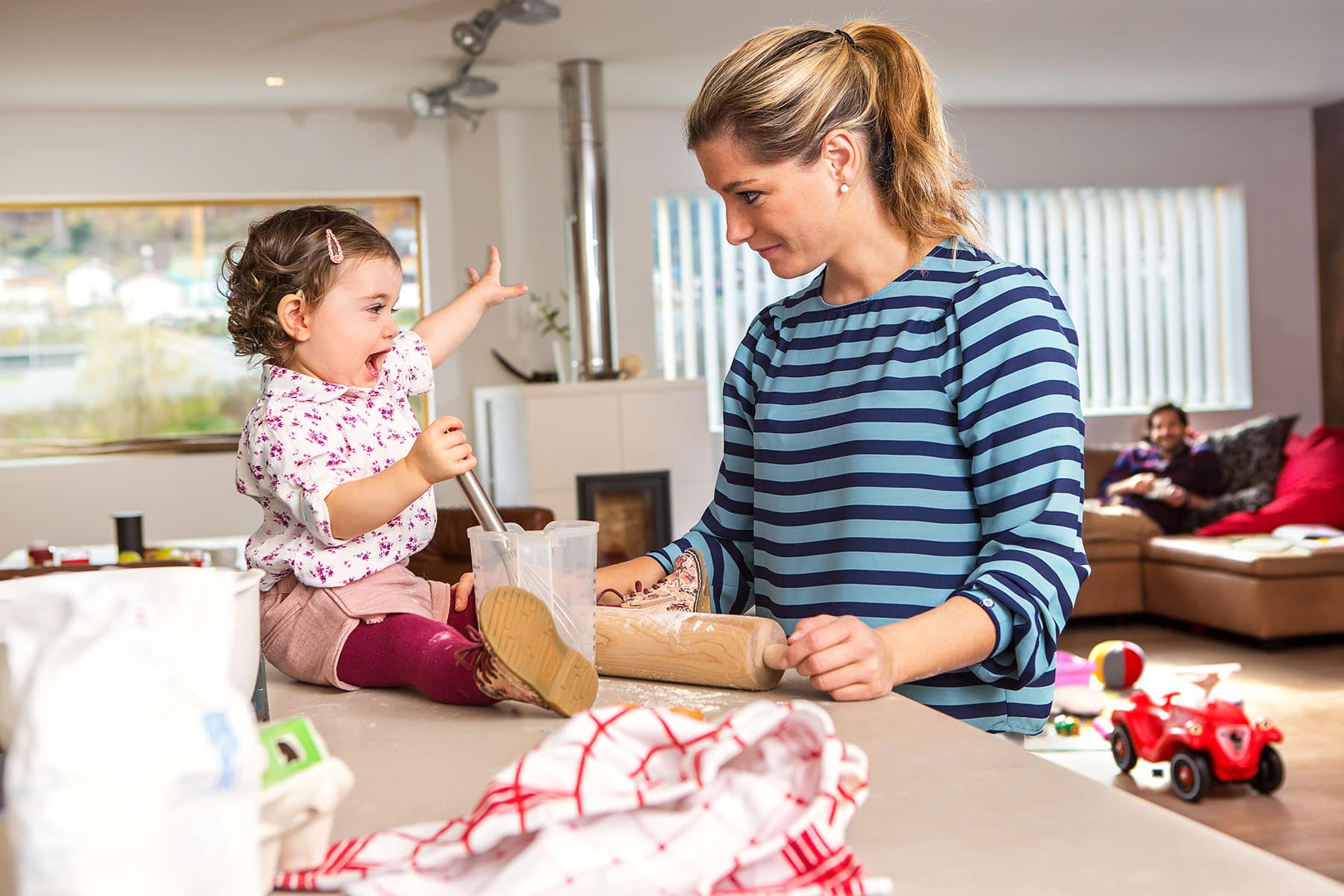6 Ways to Help Your Child Get Past Frustration

If your child has just received a cochlear implant, she’ll likely be taking her first steps in building her language and communication abilities. In this time it’s possible that she’ll get frustrated when trying to communicate with other people. It’s like the terrible twos of cochlear implants.
As a parent, there are lots of ways that you can help your child through these tough times.
The Cause of Frustration
Crying, tantrums, pulling away from social situations, and ignoring or not following directions are all ways that she might show frustration. She could get frustrated for lots of different reasons, and one of them might be because she doesn’t know how to communicate or get her message across.
Helping Your Child
Clear, Age-Appropriate Language
Lots of this frustration might be because your child doesn’t understand what’s being said. The best way to get past this is to use language that she’ll understand. Use short and meaningful phrases that fit to what’s going on, with words she might have heard before.
For example, if she knows what “bye-bye” means then use this small phrase in a bigger sentence like “It’s time to go home now. We can play with the truck later. Bye-bye truck, We’ll see you later. Bye, truck. We’ll play with you next time.”
Let Them Know You Understand
If you see your child seems frustrated, let her know that you understand. Help her to learn about her feelings by giving names to them. For example, you might tell her, “I can see that you are feeling frustrated. I know you want to play with the car. It’s Ben’s turn now. We need to wait, and you can have a turn after Ben.”
Keep Track of the Frustrating Situations
Watch your child’s behavior and see if there are types of situations where she consistently gets frustrated. Then, make a game out of situations like these.
Act through the situations over and over, and with each time have it end in a different way. One way might end up with your child being frustrated, while in another you might show your child a way to get past the difficulties that she is having.
Practicing games like this over and over can help build her knowledge, and hopefully she’ll be able to apply her knowledge and get through situations where before she might have gotten frustrated.
Create an Experience Book
We’ve said how experience books can help your child develop skills before, and here’s one more way. Like the game example above, creating an experience book about a frustrating situation can help your child understand exactly what’s going on and why she gets frustrated.
For example, if your child gets frustrated with a friend or classmate then draw up a story that uses this specific person. Use language that your child will understand and write the story so that it ends in a way where she doesn’t get frustrated. Put words to each character’s emotions and feelings to help your child to understand how other people feel.
Be Consistent
The best way for your child to learn what you expect them to do is by making routines with consistent rules.
Let your child know what behaviors are appropriate and which aren’t, and say why. For example, you could say, “No, no. We don’t push each other. When you push your sister it hurts her.” Or when your child does something good, say, “That’s great. It is really helpful when you bring me your plate. Thank you.”
Help Your Child Develop Social Skills
As your child builds her communication skills, help her by “pre-loading” her vocabulary with useful words and phrases. Use the same phrases over and over when it makes sense to use them. Some phrases could be “Can I play with you,” “I don’t want to do xxx,” “Thank you,” “Can you say that again,” “Do you want to play,” and “My name is xxx.” By teaching these to your child, you can help her be prepared to respond with ease instead of having to think up a new phrase for each new situation.
This post was written with help from Ingrid Steyns, a rehabilitation specialist at MED-EL.
Share this with other parents who have a younger child!
References
Edwards, L., Khan, S., Broxholme, C., Langdon, D. (2006). Exploration of the cognitive and behavioural consequences of paediatric cochlear implantation. Cochlear Implants Int., 7(2), p. 61-76
Wiefferink, C.H., Rieffe, C., Ketelaar, L., Frijns, J.H. (2012). Predicting social functioning in children with a cochlear implant and in normal-hearing children: The role of emotion regulation. Int J Pediatr Otorhinolaryngol.
Thanks for your message. We will reply as soon as possible.
Send us a message
Field is required
John Doe
Field is required
name@mail.com
Field is required
What do you think?


